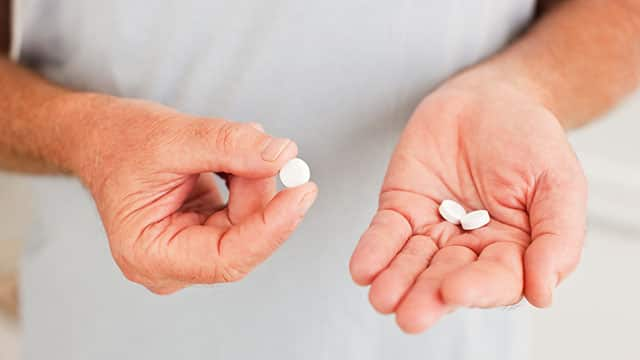What Is Meth Mouth?
Meth mouth is a term used to describe the damaging effects of methamphetamine use on the mouth. The chemicals in meth can result in serious health problems, including severe gum disease and cavities, permanent brain damage, and even death.
What Are the Oral Effects of Meth?
Not only can meth use cause serious damage to your mental and physical health, but it can also be severely devastating to your oral health. Signs of meth mouth include:
- Stained teeth. Smoking meth causes your teeth to yellow, stain, and darken, just like tobacco.
- Teeth that are falling out or severely decayed. Meth users are more likely to experience severe tooth decay and tooth loss than non-users. The poor oral hygiene, low-quality diet, and increased sugar intake associated with meth users may contribute to the decay.
- Teeth grinding. Meth stimulates your brain, causing you to grind your teeth. Grinding can cause teeth to break or loosen and worsens periodontal disease. Additionally, it can lead to a feeling of stiff facial muscles and temporomandibular joint disorder.
- Reduced salivary flow. Meth can also reduce salivary flow, leading many users to experience severe dry mouth. The lack of saliva makes it hard to swallow, more challenging to speak, and heightens the chances of developing tooth decay since saliva washes bacteria away from the teeth.
Should you experience these symptoms or have a family member you're concerned about, contact your dentist for an evaluation immediately.
Research on Meth Mouth
According to a study funded by the National Institute on Drug Abuse and published in the American Dental Association Journal, meth users are far more likely to develop dental and periodontal disease.
The study examined 571 methamphetamine users, of which:
- 96% had cavities.
- 58% had untreated tooth decay.
- 23% retained all of their natural teeth.
- 89% of male users within the group were suffering from periodontitis.
- 85% of female users within the group were suffering from periodontitis.
- Current cigarette smokers had higher rates of decay and tooth loss.
Other contributing factors to the oral health of the methamphetamine users included age and frequency of use. Patients over the age of 30 displayed more severe cases of dental disease. The study classified more than half of the participants as moderate or heavy meth users after admitting to meth use on at least four of the previous 30 days.
How Do You Treat Meth Mouth?
The first step towards a healthier mouth is getting help for meth addiction. The Substance Abuse and Mental Health Services Administration hotline is available 24 hours a day, 365 days a year. The service can help you find local treatment facilities or support groups for yourself or a loved one.
Once a patient is on a path to recovery, a dentist can make recommendations for repairing their smile. There are many routes a dentist can take to address the dental problems associated with meth mouth. Stained teeth may benefit from veneers, and your dentist can replace missing teeth with prosthetic devices, such as dentures or implants. A dentist can fill any cavities and may recommend a mouthguard to help with teeth grinding. When treating patients with meth mouth, dentists may use preventive measures like topical fluorides to protect teeth for the long term.
Each patient's needs and concerns are different, so your dentist will work closely with you to establish a unique treatment plan. One of the most important factors for oral health is establishing a healthy lifestyle, including good dietary choices and daily brushing and flossing. These simple habits will help you avoid further dental problems. Finding a dentist you can trust and talk with about your goals will help you restore confidence in your smile.
Oral Care Center articles are reviewed by an oral health medical professional. This information is for educational purposes only. This content is not intended to be a substitute for professional medical advice, diagnosis or treatment. Always seek the advice of your dentist, physician or other qualified healthcare provider.
ORAL HEALTH QUIZ
What's behind your smile?
Take our Oral Health assessment to get the most from your oral care routine
ORAL HEALTH QUIZ
What's behind your smile?
Take our Oral Health assessment to get the most from your oral care routine















